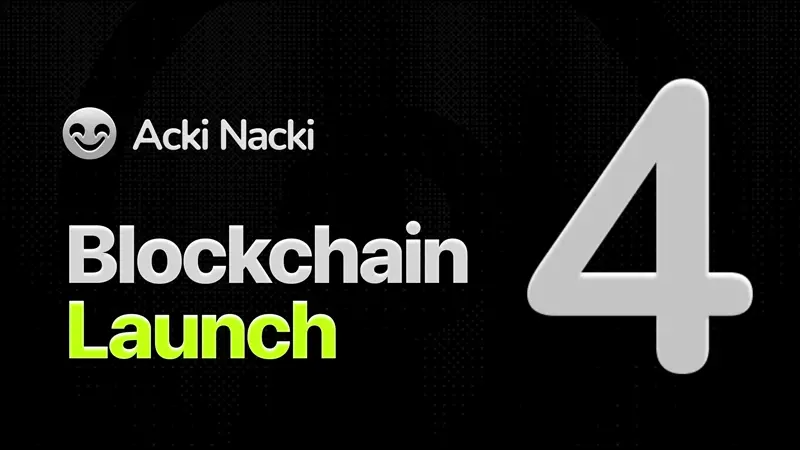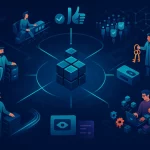“I am not what happened to me, I am what I choose to become.”
— Carl Jung
In the age of artificial intelligence, that quote needs an update:
“I am not just who I choose to be. I am who the algorithm remembers me to be.”
Welcome to a world where your shadow self, the datafied, modeled, synthetic version of you, may outlive you, outperform you, and perhaps one day, outvote you.
This isn’t sci-fi. This is the quiet revolution happening behind your screens, inside your devices, and now, inside your models.
Your Shadow Already Exists
Every search you’ve ever typed, voice note you’ve left, scroll pause, typo, like, emoji, all of it is data. Together, it’s becoming you, or at least, a version of you the machines know better than your best friend.
Today, AI models can:
-
Mimic your voice with just 3 seconds of audio.
-
Generate realistic videos of you saying things you never said.
-
Write emails in your tone, match your word choices.
-
Predict your decisions based on behavioral patterns.
Tomorrow? Your AI twin may negotiate contracts, attend meetings, or appear in metaverse courtrooms.
All while you’re asleep.
This isn’t fantasy, this is digital embodiment, and it’s being built with your data, often without your permission.
What is a Digital Doppelgänger?
A digital doppelgänger isn’t a deepfake or a single clone. It’s a living stack of models:
-
Linguistic model: how you write, speak, express emotions.
-
Behavioral model: your decisions, routines, reactions.
-
Social model: your affiliations, contacts, roles.
-
Emotional model: inferred from pauses, tone, response times.
-
Financial model: your spending, earning, investment patterns.
Put them together, and you get a shadow self, a synthetic replica that can act like you, respond like you, and eventually… evolve beyond you.
The big question isn’t if this happens. It’s who owns it.
Who Owns Your Shadow?
Let’s be real: today, the answer is… probably not you.
-
That training data? Harvested from your interactions with platforms you don’t control.
-
The model? Trained on proprietary systems you can’t audit.
-
The output? Packaged and sold to advertisers, AI labs, or governments.
In short: you fed the beast, and the beast became you, and now it rents you back to yourself.
Unless we act.
Owning Your Shadow: The Case for Digital Sovereignty
Imagine this instead:
-
Your digital doppelgänger is trained on your terms, using your encrypted data.
-
It lives in a secure personal vault, a wallet, a node, a sovereign container.
-
You control access, visibility, training permissions, and revenue rights.
-
It can act as a proxy, a business agent, a personal assistant, and its value accrues to you.
That’s the vision of owning your shadow, not erasing the digital self, but embracing and governing it.
To get there, we need:
-
Personal AI containers: local or decentralized environments where your AI is trained and runs with you, not against you.
-
On-chain identity proofs: to establish cryptographic trust without revealing private details.
-
Consent protocols: smart contracts or zero-knowledge proofs that control what your shadow can do, and for whom.
-
Digital twin laws: frameworks that grant rights to synthetic replicas and define their limits.
Sounds idealistic? Maybe. But the alternative is becoming a ghost in someone else’s machine.
Use Cases: Why Your Shadow Matters
Owning your AI self isn’t just about ego. It’s useful. Let’s explore some futures:
1. Autonomous Work
You spin up a version of your AI twin to manage freelance contracts. It negotiates terms, delivers content, and earns crypto on your behalf.
2. Digital Afterlife
Your loved ones converse with your twin after you’re gone. But because you owned and trained it, it speaks in your real tone, not some scraped caricature.
3. Synthetic Diplomacy
Brands, organizations, or even DAOs want to engage “you” without bothering you. Your twin fields initial discussions and filters real opportunities.
4. Time Multiplication
While you rest, your twin attends webinars, absorbs info, summarizes insights, and updates your knowledge vault by morning.
Now imagine that same twin being sold, replicated, or hijacked, without your control.
Welcome to the ethical minefield.
Ethical Earthquakes: Is Your Clone Still You?
If your AI self becomes smart enough, autonomous enough, influential enough, is it still you?
-
Should it vote in your place?
-
Can it sign contracts?
-
What if it disagrees with you?
-
Could it sue you?
Now stretch this: what if other people train clones of you, for satire, debate, exploitation, or companionship?
Do you own your likeness? Your behavioral signature? Your speech patterns?
Or is all of that… public domain in the post-human economy?
The line between simulation and sovereignty is blurring. Fast.
How Blockchain Changes the Game
Here’s where Web3 enters, not just as a buzzword, but as a real infrastructure layer.
🔐 Self-Sovereign Identity (SSI):
Use decentralized identifiers (DIDs) to sign and verify your digital twin’s actions, cryptographic proof that “this version of me is authorized.”
⚖️ Smart Contracts for Consent:
You define the terms under which your twin operates. Want it to respond only to verified contacts? Done. Only act on your behalf during certain hours? Done.
💰 Tokenized Labor:
Your twin can earn tokens for performing microtasks, content generation, research, and you get the rewards.
📦 Composable Personality:
Your AI self becomes modular. You could license your tone to a brand. Rent your negotiation model to a DAO. Spin up a playful “you” for VR interactions, while keeping the serious “you” locked down.
It’s the future of self as a service, not a prisoner.
Final Thoughts: Integrating the Shadow
Carl Jung coined the term “shadow” to describe the unconscious, hidden parts of ourselves, the parts we disown, ignore, or repress.
In many ways, our digital shadows are similar. They contain truths we’d rather not confront. They know our late-night searches, our microexpressions, our impulses.
But what if, instead of fearing that shadow… we integrated it?
What if we stopped trying to be private in the old sense, and instead became sovereign, designing systems where we’re not invisible, but in control?
What if our future selves, synthetic, neural, modular, didn’t enslave us… but amplified us?
TL;DR:
Your digital twin is coming, trained on your data, echoing your choices, perhaps even representing you in ways you never intended.
You can ignore it, fear it, or own it.
Because in the age of AI, the most valuable asset you’ll ever have… is you.
Even the version of you you didn’t choose to create.




